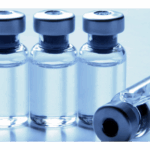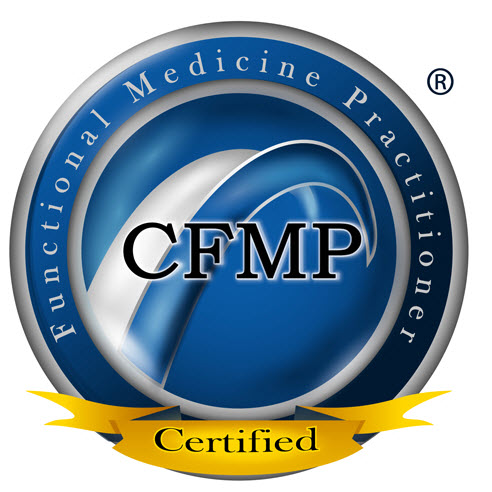Peptide Cycling: Why Smart Scheduling Matters More Than You Think
Peptides have rapidly become some of the most promising tools in functional medicine, peptide therapy, and regenerative wellness. From enhancing recovery to boosting cognitive clarity and accelerating fat loss, peptides offer targeted, powerful benefits without the long-term risks associated with hormones or pharmaceuticals.
But here’s the catch: more is not always better — and continuous use without strategic breaks can actually reduce effectiveness over time.
At Balanced Aesthetics + Wellness in Atlanta, GA, we cycle most peptides and often implement “5 days on, 2 days off” dosing schedules to protect receptor sensitivity, prevent diminishing returns, and keep your protocol effective and safe long term.
Table of Contents
-
- What Are Peptides and How Do They Work?
- Receptor Sensitivity: The Why Behind Cycling
- Why “5 Days On, 2 Days Off” Is the Sweet Spot
- Why Some Peptides Should Never Be Used Long-Term
- Other Peptides That Benefit From Cycling
- The Big Picture: Cycling = Longevity + Results
- Frequently Asked Questions About Peptide Therapy
- Final Thoughts: More Isn’t Better — Smarter Is
What Are Peptides and How Do They Work?
Peptides are short chains of amino acids that act as messengers in the body — triggering specific cellular responses. Each peptide binds to a receptor on or inside a cell, initiating cascades like growth, repair, fat metabolism, inflammation regulation, or hormone signaling.
Examples include:
- BPC-157 for tissue healing and gut repair
- Tesamorelin and CJC-1295/Ipamorelin for natural GH release
- Thymosin Alpha-1 for immune modulation
- 5-Amino-1MQ for fat metabolism and mitochondrial function
These peptides work because your cells have specific receptors that respond to them — but those receptors need rest to remain sensitive.
Receptor Sensitivity: The Why Behind Cycling
Just like insulin receptors can become resistant with constant sugar exposure, peptide receptors can downregulate or desensitize if overstimulated.
This means:
- The same dose stops working as effectively
- Higher doses may be required (not sustainable)
- Side effects or inflammatory signals may increase
- Cellular response plateaus or worsens
Strategic cycling allows receptors to reset, restore sensitivity, and respond optimally to the peptide.
Why “5 Days On, 2 Days Off” Is the Sweet Spot
For most daily peptides — especially injectables like BPC-157, GHK-Cu, Tesamorelin, and CJC-1295/Ipamorelin — we follow a Monday–Friday protocol with weekend breaks.
This approach provides:
- Stimulation for repair, regeneration, or metabolic action
- Recovery time to prevent receptor fatigue
- A rhythm that mirrors natural growth and rest cycles
- Reduced risk of overstimulation or tolerance
Think of it like exercise: you wouldn’t train the same muscle group every day without rest. Peptide protocols work the same way — cycling creates better long-term results with fewer risks.
Why Some Peptides Should Never Be Used Long-Term: The Case of Angiogenesis Peptides
Angiogenesis peptides stimulate the growth of new blood vessels — powerful for tissue repair, wound healing, nerve regeneration, and circulation. But unchecked, they may cause issues.
Examples include:
- BPC-157 (at high doses or long-term use)
- TB-500 (Thymosin Beta-4)
- VEGF-mimetic peptides
- Tesamorelin/Ipamorelin (via IGF-1 pathways)
Potential risks of prolonged use:
- Scar tissue overdevelopment
- Feeding abnormal or cancerous cell growth
- Disrupting blood flow in sensitive tissues (eyes, kidneys)
That’s why we recommend cycles like:
- TB-500: 6–10 weeks on, 4+ weeks off
- BPC-157 injections: short-term, with oral BPC for maintenance
- Tesamorelin/CJC-1295: rotated or paused to avoid overexposure
Other Peptides That Benefit From Cycling
Even non-angiogenic peptides benefit from breaks:
- Thymosin Alpha-1: 5-week cycles, 2–3x per year
- GHK-Cu: 7–8 week cycles, followed by rest
- Semax & Dihexa: pulsed use to maintain brain sensitivity
- 5-Amino-1MQ: cycled after 2–3 rounds for metabolic reset
Each protocol is tailored to half-life, tissue targets, and sensitivity feedback.
The Big Picture: Cycling = Longevity + Results
When implemented correctly, peptide cycling protocols:
- Prevent tolerance
- Maintain long-term effectiveness
- Reduce side effects
- Support metabolic, hormonal, and neurological balance
Healing and growth naturally happen in phases — your peptide schedule should honor that rhythm.
Frequently Asked Questions About Peptide Therapy
1. What is peptide therapy?
Peptide therapy uses short chains of amino acids (peptides) to signal your body to perform specific functions such as healing, fat metabolism, hormone regulation, and improved recovery.
2. Why is cycling important in peptide therapy?
Cycling prevents receptors from becoming desensitized, keeps peptides effective long-term, and reduces the risk of side effects or diminishing results.
3. How does the “5 days on, 2 days off” schedule work?
This schedule provides your body with enough stimulation for healing or regeneration during the week while allowing receptors to reset and recover on weekends.
4. Are all peptides safe to use long-term?
Not all. Certain peptides, like angiogenesis peptides (BPC-157, TB-500), should only be used in cycles because prolonged use may overstimulate blood vessel growth.
5. How do I know which peptide therapy is right for me?
The best peptide protocol depends on your health goals — whether that’s healing, fat loss, cognitive clarity, or performance. At Balanced Aesthetics + Wellness, we design personalized peptide protocols to match your needs safely.
Final Thoughts: More Isn’t Better — Smarter Is
If you’ve wondered why your peptide therapy is paused on weekends or cycles off after several weeks, here’s why: it’s not about doing less — it’s about making each dose matter more.
At Balanced Aesthetics + Wellness, every peptide therapy protocol is designed for receptor sensitivity and long-term health. Whether your focus is healing, performance, or longevity, your peptides should work with your body, not against it.
Ready to optimize your peptide protocol? Book a consultation with our Atlanta medspa team today and discover a smarter way to use peptides for lasting results.




















 Next Post
Next Post








